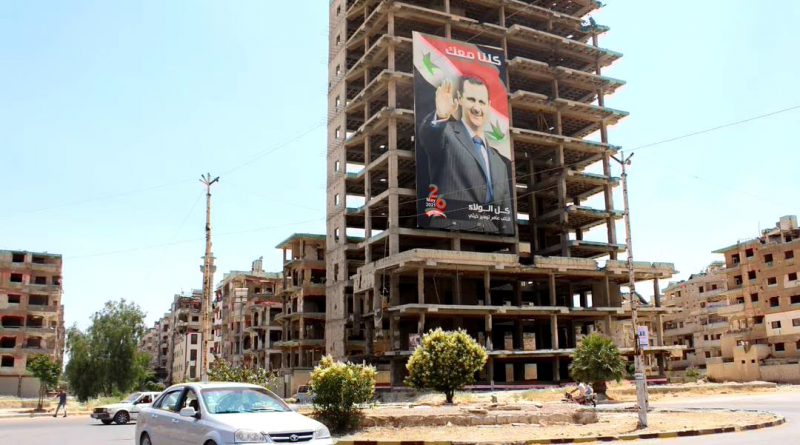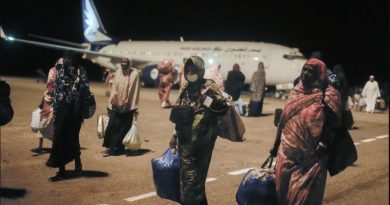Syrians who fled Assad fear he will soon choke off aid
Beirut (Reuters) – Syrians who fled President Bashar al-Assad’s rule fear he may soon be able to choke off badly needed aid as Damascus acts to establish sway over U.N. assistance into the rebel-held northwest, the last major bastion of the Syrian opposition.
A tussle at the U.N. Security Council over the aid operation has played to Assad’s advantage, with his ally Russia vetoing an extension of its mandate this week and paving the way for Damascus to approve one itself – but on its terms.
Aid workers said the outlook for one of the world’s biggest humanitarian operations had been thrown into doubt, with Syria’s demands for “full cooperation and coordination” raising fears of big complications ahead for their work.
“Ever since we heard about the decision, all the families in the camp have been lost, confused, scared,” Abu Ahmad Obeid, a father of seven who has lived in a camp in the northwest since fleeing his home in government-controlled territory in 2018, told Reuters by telephone from the region.
“We rely on that aid for everything – medical support, food, everything,” he said.
Khalid al-Idlibi, 27, who fled his home in 2019, said by phone that Assad “is the person responsible for the tragedy of these people, so how will he be responsible for the aid?”
People poured into the northwest from all over Syria as Assad, backed by Russia and Iran, seized back rebel enclaves in the latter stages of the civil war that erupted in 2011.
The northwest is home to 4.5 million people, 2.9 million of whom were displaced during a shattering conflict that has killed hundreds of thousands of people since it spiralled out of anti-government protests that were met by deadly force.
Some 2 million live in camps, the U.N. says.
NGOs and individual states have long organised unilateral aid convoys into the northwest. But U.N. agencies will not cross the border without government or Security Council approval, which lapsed on Monday as members struggled to convince Russia to extend the operation for more than six months.
Damascus then gave the nod for the operation to continue via the Bab al-Hawa border crossing from Turkey for six months. Damascus has long rejected the operation as a violation of sovereignty, saying aid should be delivered from within Syria.
For Assad, it marks the latest in a series of developments that have gone his way on the international stage, after fellow Arab states brought him back in from the cold.
The move is seen to offer him a potential source of leverage over Western states that largely finance aid operations, and gives him a way to put pressure on a rebellious region which is held by armed groups that have fought to topple him.
‘Worst- Case Scenario’
“This is a worst-case scenario,” said Abdelsalam Daif, senior strategy adviser at Syria Relief & Development, a U.S.-based aid organisation.
“If this is in the regime’s hands, then the regime could stop it at any time. It is trying to erase everything that was built over the last 10 years and take it into its own hands.”
The Syrian government did not immediately respond to a Reuters request for comment on the concerns raised.
In a letter to the U.N. secretary general announcing its decision, Syria said it wanted to improve “humanitarian and living conditions of all Syrians” and to smooth aid deliveries.
The letter also stipulated that U.N. staff members would be barred from communicating with “terrorist organizations and groups and their affiliated illegal administrative entities”.
This included an opposition government affiliated with the Hayat Tahrir al-Sham (HTS) group, formerly a branch of al Qaeda. The U.N. already designates HTS as a terrorist organisation.
But a lack of clarity in the letter about what constitutes a terrorist organisation is one source of concern for aid workers.
Damascus has broadly described anyone fighting it as a terrorist, while also applying the term to other organisations operating in rebel-held territory, such as rescue workers.
“Based on past examples … we are concerned about how these will be interpreted,” said Sherine Ibrahim, Turkey country director for CARE, who works on cross-border aid deliveries.
“We are deeply concerned by the implications of the non-renewal of the cross-border aid mechanism,” she said, adding that the full impact would become known in the coming weeks.
Syria’s letter said the International Committee of the Red Cross (ICRC) and the Syrian Arab Red Crescent (SARC) would be allowed to distribute aid in the country’s northwest.
This also presents complications. The HTS has refused to collaborate with SARC in previous offers of aid, notably following the February earthquake.
ICRC media adviser Jessica Moussan told Reuters the ICRC does not conduct cross-border aid in Syria under U.N. auspices, but stood “ready to support in ways that fall within our capabilities and in coordination with all actors on the ground”.



